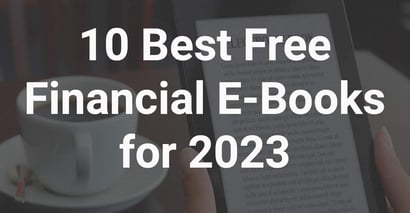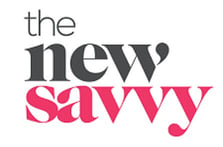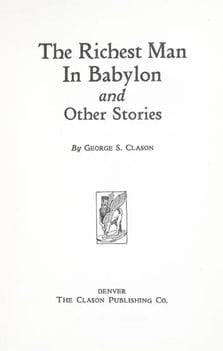
There’s no shortage of financial advice on the web. It’s not an exaggeration that for every recommendation you read or watch online, you can find something that says the opposite in about five seconds.
With everybody wanting to tell or sell you something, no wonder many consumers say the heck with it and do what comes naturally with their money. Because that can lead to bad outcomes and frustration about what could have been, we’ve compiled this list of free financial e-books to help get you and keep you on the right track.
Our merit-based list covers many financial needs and priorities. If you’re tired of endless scrolling and want self-contained instructions to maximize your money and potential, this list is for you.
Best for Banking Fundamentals: “Banking Basics” by the Federal Reserve Bank of Boston

The Federal Reserve Bank of Boston is one of 12 regional banks in the US Federal Reserve System responsible for managing the money supply and ensuring the economy runs smoothly. The bank also educates the public about spending and saving wisely.
In “Banking Basics”, the Federal Reserve Bank of Boston summarizes how the US banking and financial system works. If that sounds like a lot, consider that the bank directs this material at young people. Even so, it’s a fascinating read for anyone interested in why things are how they are in the US economy.
Understanding how banks and other financial service providers operate is essential for making sound money decisions. Download your free e-book here.
More About “Banking Basics”
- “Banking Basics” answers questions such as what is a bank, how do people start banks, and how did banking begin
- Resource list points readers to additional information
Best for Women: “What Women Need to Know About Retirement” by Practical Money Skills

Visa, one of the major US credit card networks, also sponsors a global financial literacy initiative, Practical Money Skills, to provide tools and resources to consumers, educators, banks, and governments and help individuals and communities thrive financially.
Because Practical Money Skills reaches out to basically everyone on the financial spectrum, it’s not surprising that it addresses the unique concerns of women, who are responsible for much of the purchasing power in our economy.
“What Women Need to Know About Retirement” tackles wealth management for women interested in planning for the future in ways that consider the unexpected. Download your free e-book here.
More About “What Women Need to Know About Retirement”
- This e-book is a joint project of the Heinz Family Philanthropies and the Women’s Institute for a Secure Retirement
- Topics include planning, investing, Social Security, and healthcare
Best for Financial Literacy: “Financial Literacy Questions and Answers” by BMO and the United Way

The United Way is one of America’s best-known and most respected charitable organizations. A message of financial responsibility underlies much of its work. It publishes annual reports, white papers, surveys, and reports to help solve many community problems stemming from money and the economy.
In partnership with BMO, a leading bank, the United Way released “Financial Literacy Questions and Answers” to answer general banking questions and explain debt, credit, budgeting, retirement, and other financial challenges.
The e-book uses an accessible question-and-answer format to cut through the clutter and provide technical details about banking institutions and fundamentals. Download your free e-book here.
More About “Financial Literacy Questions and Answers”
- A section on financial emergencies lists ways to protect against identity theft
- Information on mortgages recommends ways to avoid foreclosure
Best for Understanding Credit Scores: “Give Yourself Some Credit” by OnPoint Community Credit Union

As member-owned and -managed cooperative financial institutions, credit unions are vested in financial education to help members and communities thrive. Based in Portland, Oregon, OnPoint Community Credit Union expands its member and community responsibility to consumers everywhere through its free 2023 Guide to Credit Reports and Scores.
The 2023 OnPoint guide explains the role of the three major US credit bureaus, how the bureaus calculate credit scores, and how scores rise and fall in response to consumer behavior. The e-book also discusses common misconceptions about credit reports and scores. Download your free e-book here.
More About “Give Yourself Some Credit”
- A six-question credit quiz at the end of the e-book helps readers review what they learned
- Information on correcting credit report errors and omissions includes contact info for the three bureaus
Best for Students: “Building Wealth” by the Federal Reserve Bank of Dallas

The Federal Reserve Bank of Dallas is another of the regional Fed banks in the Federal Reserve System responsible for managing the money supply and ensuring the economy runs smoothly. Federal reserve banks also seek to educate the public about ways to spend and save wisely.
“Building Wealth” addresses several distinct groups, including students, all too often overlooked. There’s an online version of the material, but the bank provides free print versions in English and Spanish and even invites people to request free physical copies.
“Building Wealth” starts with the basics and carries students through budgeting, saving, building credit, and protecting assets — perfect for young financial consumers. Download your free e-book here in English or Spanish.
More About Building Wealth
- Printable forms help readers set financial goals and manage money
- A glossary defines dozens of financial terms to eliminate confusion and guesswork
Best for Frugal Living: “Minimalist Rulebook” by The Minimalists

Minimalism is the art of doing more with less, say Joshua Fields Millburn and Ryan Nicodemus, better known to podcast fans as The Minimalists. When you build healthy boundaries, remove distractions, and declutter, there’s room for things you perhaps never thought about.
Besides their popular podcast, Joshua and Ryan offer many means to connect with their work, including “Minimalist Rulebook,” a free e-book offering 16 rules for living with less.
Readers learn the art of minimalism through the No Junk Rule, the Seasonality Rule, the Just-in-Case Rule, and 13 other maxims. Submit your email here to receive your copy and subscribe to The Minimalists’ newsletter.
More About “Minimalist Rulebook”
- The Minimalists say rules are helpful only if they produce the desired result in a way that satisfies everyone, so they designed the e-book to be flexible
- But they believe minimalism is about getting out of your comfort zone and doing things in new ways
Best for Couples: “Weatherproof Your Marriage Financially” by The New Savvy

The New Savvy is Asia’s leading financial, investment, and career platform for women. But copious resources, including free e-books, on The New Savvy website are helpful wherever women plan marriages, family, and their financial future.
One New Savvy e-book with global appeal is “All You Need to Know Before Marriage.” It may seem like a book about the facts of life, and it is, in some ways. It deals with merging accounts, the stress of mismatched financial expectations, and how to manage finances in mutually beneficial ways. Submit your email here to receive your copy and subscribe to The New Savvy newsletter.
More About “Weatherproof Your Marriage Financially”
- To reduce financial stress, this e-book recommends mutual understanding and respect for the values each partner places on money
- Content deals with major financial milestones in marriages and fine-tuning financial harmony in a marriage
Best for Building Credit: “The Ultimate Beginner’s Guide to Credit Scores” by General Electric Credit Union

It’s one thing to understand how the three major US credit bureaus compile your credit score, but it’s harder to predict how scores from different bureaus will vary in response to unexpected life events.
That’s where General Electric Credit Unions, based in Cincinnati, Ohio, comes in. Its free e-book “The Ultimate Beginner’s Guide to Credit Scores” explains in detail how college, marriage, parenthood, divorce, or the loss of a spouse can cause scores to bounce.
The e-book also does a great job explaining how scores and bureaus work. Download your free e-book here.
More About “The Ultimate Beginner’s Guide to Credit Scores”
- The e-book contains printable worksheets for setting short-term, mid-term, and long-term financial goals
- Tips for rebuilding your credit score include adjusting your credit utilization to within the bureaus’ recommendations
Best for Financial Independence: “The Money Boss Manifesto” by J.D. Roth of Get Rich Slowly

For J.D. Roth, creator of the personal finance blog Get Rich Slowly, the journey to financial independence can begin anywhere, even when deeply in debt. All it takes is to achieve mastery over your financial behavior.
J.D. speaks from personal experience. He graduated from college with a load of credit card debt, which kept getting deeper until he decided to do something about it. He describes that moment as hitting rock bottom.
J.D.’s free e-book, “The Money Boss Manifesto,” presents his financial philosophy and calls on readers to prioritize financial independence no matter where they are on their financial journey. Download your free e-book here.
More About “The Money Boss Manifesto”
- J.D.’s six stages of financial freedom begin with dependency and end with abundance
- He defines financial independence as having enough money saved and invested to fund your current lifestyle indefinitely
Best for Financial Lessons: “The Richest Man in Babylon” by George S. Clason

In the 1920s, American author George S. Clason decided to write about money and responsible financial management. It was an appropriate topic for the time, a consumerist era known as the Roaring 20s.
Clason’s “The Richest Man in Babylon” became a classic in financial writing for its parable-based advice set thousands of years ago in ancient Babylon.
Through “The Seven Cures For a Lean Purse,” “The Five Laws of Gold,” and other parables, Clason takes readers on a journey that puts money in a moral perspective based on self-respect, family, and community. Download your free public-domain copy of Clason’s book here.
More About “The Richest Man in Babylon”
- Clason originally published his parables as pamphlets that banks and insurance companies distributed; he later collected them into a book
- Clason started a map company that was the first to publish a road atlas of North America
There you have it: our list of the 10 Best Free Financial E-Books for 2023, with the last one on the list almost 100 years old. It shows that some advice never gets old.
The trouble with financial advice is that it’s easy to give and harder to take. It’s even harder to take financial advice when it can mean curtailing your lifestyle. As we hope we’ve shown, that doesn’t have to be the case.
We hope you find a free e-book on this list that helps you sit down, relax, and contemplate where you are and where you need to be on your financial journey.



